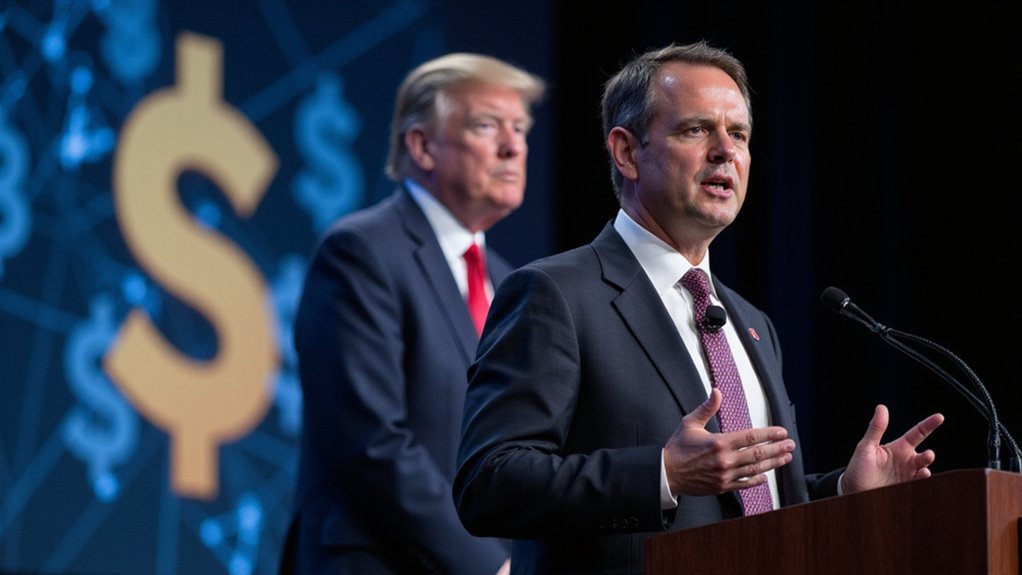The Senate’s passage of the GENIUS Act of 2025—a legislative acronym that somehow manages to be both painfully contrived and oddly fitting for cryptocurrency regulation—represents the most significant federal attempt to bring order to the $150 billion stablecoin market that has operated in regulatory limbo since its inception. The bill’s 68-30 approval on June 17 establishes a thorough framework that would finally answer the question of whether digital dollars deserve the same regulatory scrutiny as their analog predecessors.
The $150 billion stablecoin market finally faces federal oversight after years of regulatory limbo and digital Wild West chaos.
Under the legislation, stablecoin issuers must navigate a licensing gauntlet that includes Bank Secrecy Act compliance, anti-money laundering protocols, and know-your-customer requirements—essentially the full regulatory buffet that traditional financial institutions have been enjoying for decades.
The act restricts participation to entities with market capitalizations under $10 billion, creating what amounts to a regulatory glass ceiling that may either foster healthy competition or simply drive larger players offshore.
The reserve requirements reveal lawmakers’ particular obsession with liquidity, mandating that backing assets consist primarily of Treasury securities with maturities of 93 days or less, alongside repurchase agreements capped at seven-day terms. This conservative approach (overcollateralization required) suggests Congress learned something from the Terra Luna debacle, though whether these safeguards prove sufficient remains an open question worth several billion dollars. Issuers must provide monthly reports on outstanding stablecoins and reserve composition, examined by accounting firms to ensure compliance with the one-to-one reserve mandate.
Bipartisan sponsors including Senators Hagerty, Scott, Gillibrand, and Lummis have framed the legislation as providing much-needed regulatory clarity, while critics argue it applies weaker standards than those governing traditional banks—a curious inversion given crypto’s volatility compared to conventional deposits. The bill now advances to House following the Senate’s decisive vote, where it will face fresh scrutiny from representatives who may prove less accommodating to crypto-friendly provisions.
Industry groups predictably celebrate the prospect of regulatory certainty, though their enthusiasm may wane once compliance costs materialize. While stablecoins face this new regulatory framework, related crypto activities like mining continue to operate under existing federal regulations that treat mined cryptocurrency as taxable income subject to complex reporting requirements.
The legislation’s emphasis on transparency and periodic auditing requirements suggests regulators have finally grasped that “trust but verify” approaches work poorly in markets where trust itself has been repeatedly monetized and subsequently vaporized. Whether the GENIUS Act proves genuinely innovative or merely another regulatory band-aid on a fundamentally unstable system will likely depend on implementation details that remain frustratingly vague.








